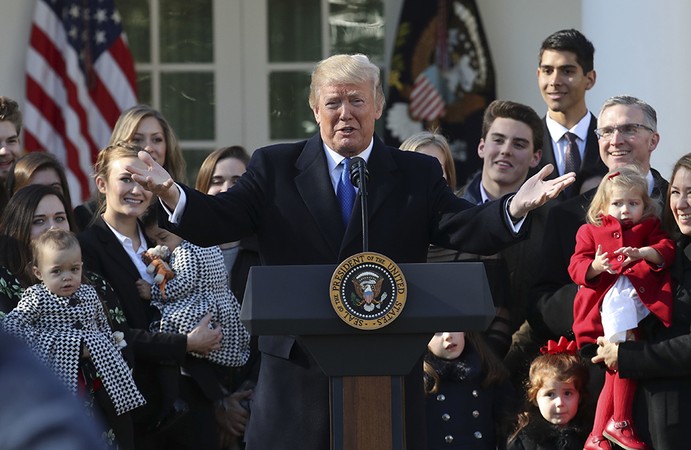Disclaimer: This piece was written in response to “Trump supports March for Life,” published Feb. 6.
A recent article in the Chimes argued Christians should not support restrictions on abortion—or dismembering babies in the womb—because, “A restrictionist government is non-democratic.” The writer comes to this conclusion from an assertion she makes about liberty and the Declaration of Independence. She argues that President Trump’s stance on protecting the right to life “neglects and decontextualizes” the right to liberty in the Declaration. She defines liberty as the “freedom to choose and vote and live as you please.”
Multiple problems arise in the writer’s argument, but I will only address two. The first addresses her definition of liberty. The second addresses her assertion that “a restrictionist government is non-democratic.”
AN ORDERED LIBERTY
First, I would like to engage her definition of liberty. She asserts that liberty is the “freedom to choose and vote and live as you please.” She asserts this definition with little argument. I believe this definition is patently false because it is incoherent and undermines liberty. If we live as we please, we will inevitably infringe the rights of other people. Our will is going to crash against someone else’s will. This self-defeating definition will lead to chaos and anarchy.
Instead, I propose a more classical definition of liberty. Liberty can only be understood within the confines of virtue. Liberty does not mean the freedom to live as we please, but the freedom to live according to the principles of virtue. These principles are grounded in natural law, or the objective, absolute moral law of the universe. Romans 2:15 states, “The work of the law is written on their hearts, while their conscience also bears witness, and their conflicting thoughts accuse or even excuse them.” These principles are known by all humans whether we choose to acknowledge them or not.
NATURAL RIGHTS FOR ALL
If an ordered liberty is the correct understanding of liberty, then a “restrictionist government” is necessary. Romans 13:1-7 speaks to this point: “For [government] is the servant of God, an avenger who carries out God’s wrath on the wrongdoer.” This form of government is not contrary to liberty—it promotes and protects liberty. It does, however, remain partially contrary to democracy because the United States is a democratic-republic. The founders intentionally structured the U.S. system of government to be partially undemocratic because it seeks to protect the natural rights of its citizens, and pure democracies have a horrendous tendency to trample on those rights, evidenced by the French Revolution. However, the government is only restrictive for the purpose of protecting natural rights.
The Constitution and Bill of Rights protect our natural rights from the government. Criminal law protects our natural rights from our fellow citizens. The only way one can forfeit one’s natural rights is to violate the natural rights of another person. The Constitution, the Bill of Rights and criminal law are elements of “restrictionist government.” They do not harm our liberty, but uphold it.
If the unborn baby is a person, as the writer admits, then the purpose of government necessitates governmental protection of the unborn. Because all persons have the right to life, liberty and the pursuit of happiness, criminal law can justly protect unborn children by restricting individuals from violating the baby’s right to life. Restricting abortion does not harm our liberty, but improves and protects it. Who are we to decide who must forfeit their rights unless they have done so themselves?







